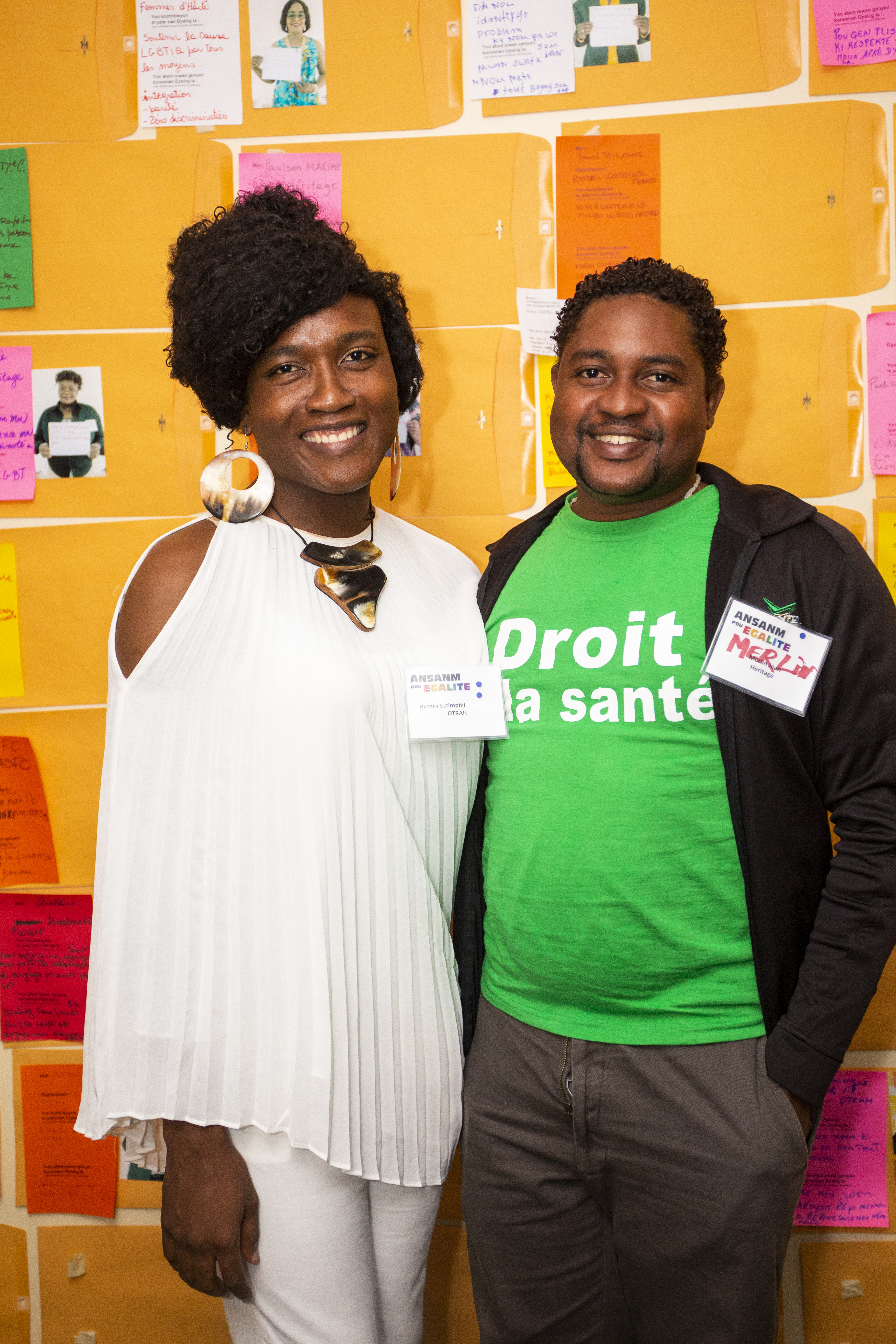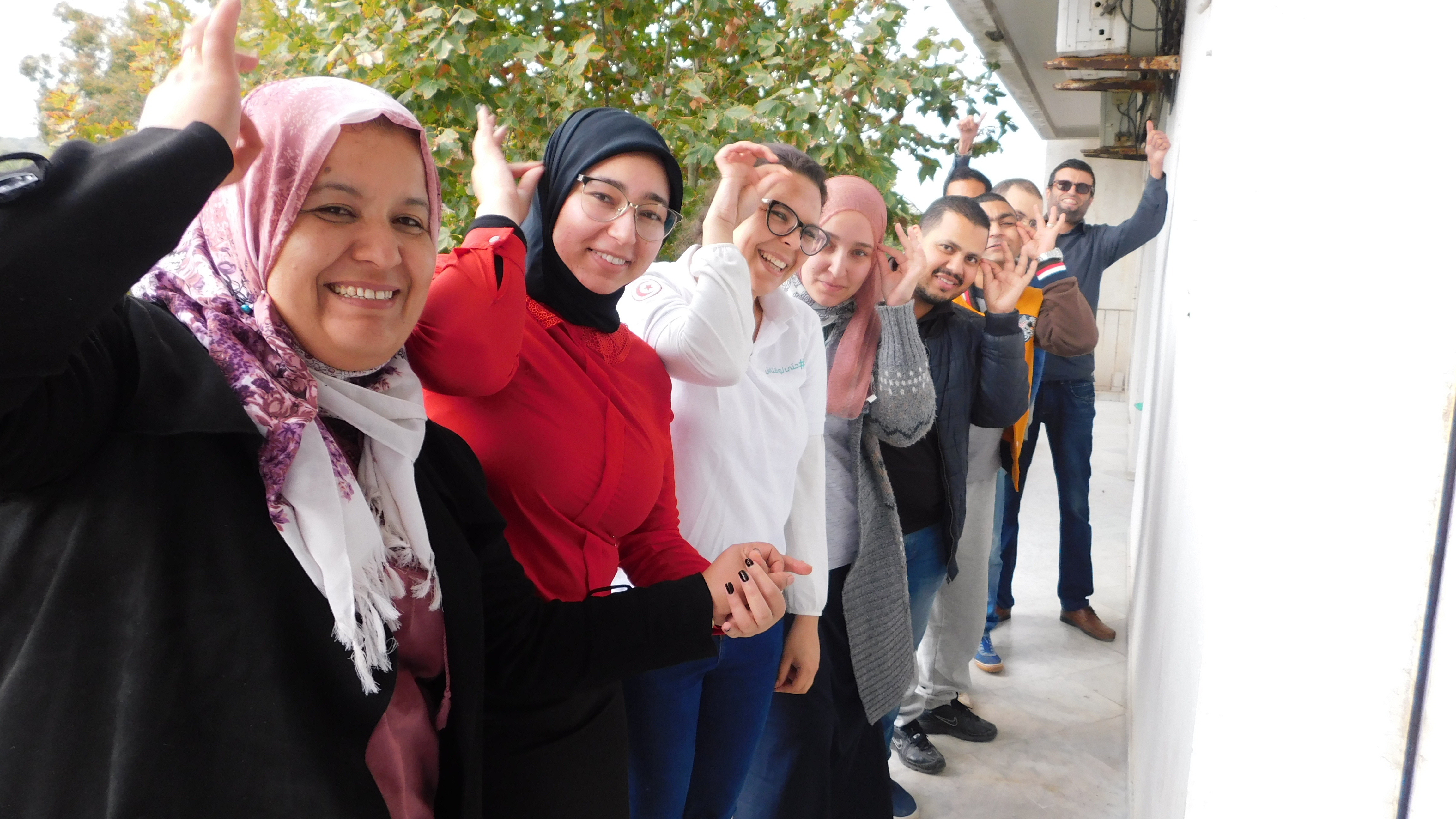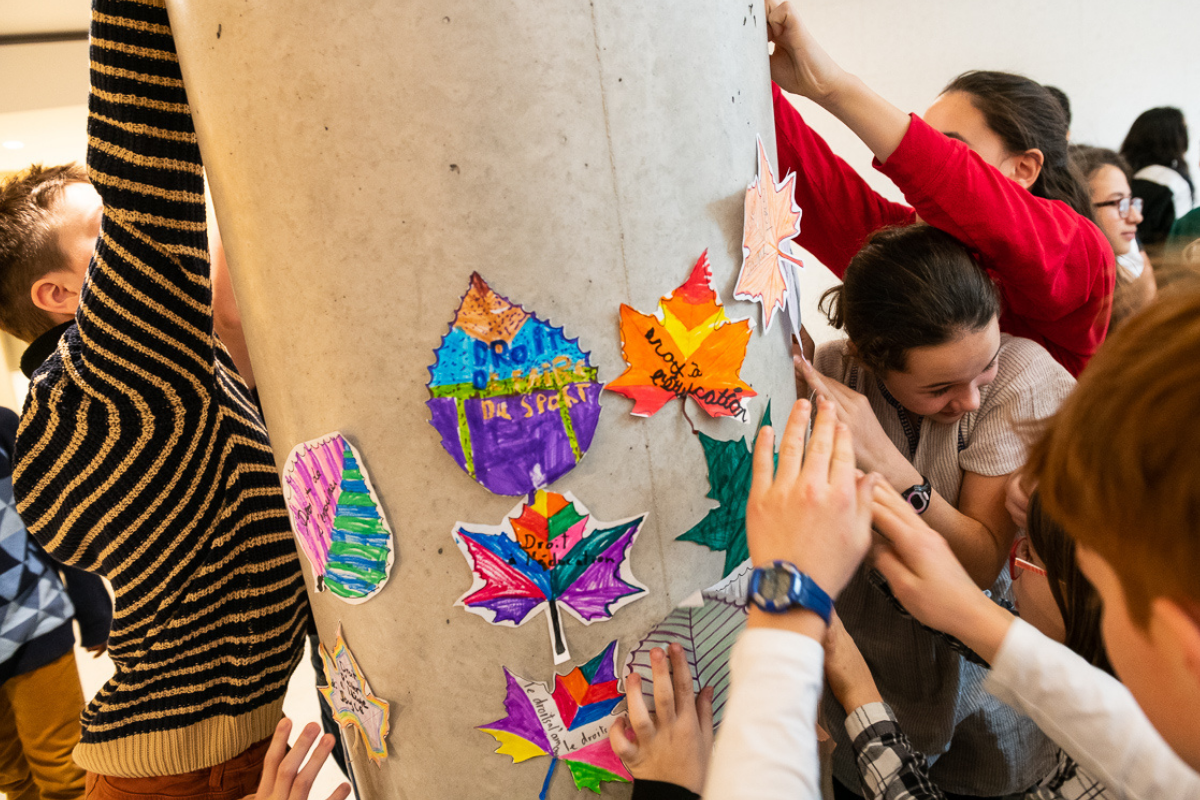Equitas > Who we are > Our Approach > Our Theory of Change
Our Theory of Change
Equitas provides knowledge, skills and tools to support the empowernment of groups that are subject to discrimination, exclusion and other forms of human rights violations, particularly women, children and youth.
Our Theory of Change adopts a holistic approach to advancing human rights and gender equality through knowledge & capacity-building, movement building, and influencing decision-makers.
Equitas provides knowledge, skills and tools to support the empowernment of groups that are subject to discrimination, exclusion and other forms of human rights violations, particularly women, children and youth. In order to do so, we continuously sharpen our methodological tools and approaches to ensure that we remain on the leading edge of human rights education and that our capacity-building programs are benefitting to the people who are most in need.

THEORY OF CHANGE
ULTIMATE OUTCOME
Equitas human rights education programs contribute to the empowerment of groups subject to discrimination, exclusion and other forms of human rights violations, in particular women, children and youth.
RESULTS
ACTIONS

KNOWLEDGE & CAPACITY BUILDING

FACILITATING COLLABORATION

POLICY DIALOGUE & ENGAGEMENT WITH DECISION MAKERS
International human rights standards are universal, indivisible and interdependent. They reflect the common aspirations of humankind and provide the foundation for living a life in dignity. There is no hierarchy of human rights and the violation of one right impedes the ability of a person to enjoy their other rights.
A human rights-based approach (HRBA) is a conceptual framework that:
- equates development to the realization of all human rights for all
- is based on international human rights standards
- views development as human development and socio-economic development
- emphasizes a holistic, participatory and accountable process
- identifies rights holders and duty bearers and their capacities
- reinforces progress towards gender equality
An intersectional approach considers diverse identities (ethnic group, gender, sexual orientation, age, class, etc.) recognizing different types of discrimination that result from the set of these identities. It tackles the way racism, patriarchy, class-based oppression and other systems of discrimination create inequalities for women and any person whose appearance or behaviour fails to conform to traditional gender norms. It considers historical, social and politic contexts and recognizes individual experiences that are the result of the convergence of different identities.
Gender equality refers to the equal rights, responsibilities and opportunities of women and men, girls and boys or any person whose appearance or behavior fails to conform to traditional male and female gender norms. Gender equality is both a human rights issue and a precondition for, and indicator of, sustainable people-centered development.
Meaningful participation is both a means and a goal of human rights education. It is a key ingredient in achieving both empowerment and the realization of all human rights. Assuring meaningful participation implies fostering a climate that encourages the free expression of opinions and ideas, giving full consideration to the ideas of others, creating opportunities for participation and building the capacity of those who face barriers to participation.
Lasting change comes through collaboration and equitable partnership. Equitable partnerships are based on a shared vision and priorities and are sustainable and mutually beneficial. Partners recognize and respect each others’ knowledge and experience and provide a forum for mutual learning. Equitable partnerships require investments of time and energy and open dialogue is critical to acknowledge and address power dynamics within these relationships.

Strengthening Leadership in Haiti
Following the tragic loss of Charlot Jeudy, a former International Human Rights Training Program (IHRTP) participant, exceptional LGBTI activist, and President of Equitas’ partner in Haiti, Kouraj, the organization had to transition to new leadership. Charlot learned the importance of strengthening leadership within the LGBTI movement from partnering with Equitas and Haitian human rights organizations. It was because of the inclusive and participatory approach Charlot had to teambuilding that his colleagues were ready to take on leadership roles after his passing. Now with Hétéra Estamphil and Stephenson Meus as President and Director, respectively, Kouraj is continuing their important work through the pandemic. Discrimination against the LGBTI community has only increased during the public health crisis, and Kouraj’s work, supported by Equitas, is becoming even more essential as they focus on combatting stigma, lobbying human rights organizations in Haiti to recognize LGBTI rights, and developing their network of allies to support new leaders in the LGBTI movement.

How Social Media is Strengthening Human Rights Movements
In Tunisia, Deaf and Hard of Hearing people were being excluded from government communications on COVID-19 that did not incorporate sign language and subtitles. Concerned by this denial of the right to access to information for Deaf people, youth from Equitas’ Rawabet program decided to act. Alongside Equitas’ partner, Centre Tunisien méditerranéen, Rawabet youth, empowered by their training about how to use new technologies to promote social rights, used social media to flood social platforms and fight for the rights of persons living with disabilities to have access to information related to COVID-19. The movement quickly built viral momentum by engaging actors all over the country; it culminated in the decision to simultaneously translate the President’s speech into sign language for the first time in Tunisian history. This crucial step and heightened awareness of the rights of Deaf people is a momentous win for persons living with disabilities in Tunisia. International human rights standards are universal, indivisible and interdependent. They reflect the common aspirations of humankind and provide the foundation for living a life in dignity. There is no hierarchy of human rights and the violation of one right impedes the ability of a person to enjoy their other rights.

Using Human Rights Education to Encourage Children to Engage with Decision-Makers
From Quebec City to Vancouver, Canadian youth celebrated the 30th anniversary of the Convention on the Rights of the Child (CRC) with Equitas’ Tree of Rights activity. Children across the country learned about key rights in the CRC by identifying those most important to them, such as the right to give your opinion and be heard. Children and youth made individual children’s rights leaves to create a Tree of Rights. One group of youth in Quebec City went one step further and actually put their right to be heard into action by walking to the Quebec Legislative Assembly and presenting their Tree of Rights to Premier François Legault and Mathieu Lacombe (the Minister of Families). International human rights standards are universal, indivisible and interdependent. They reflect the common aspirations of humankind and provide the foundation for living a life in dignity. There is no hierarchy of human rights and the violation of one right impedes the ability of a person to enjoy their other rights.